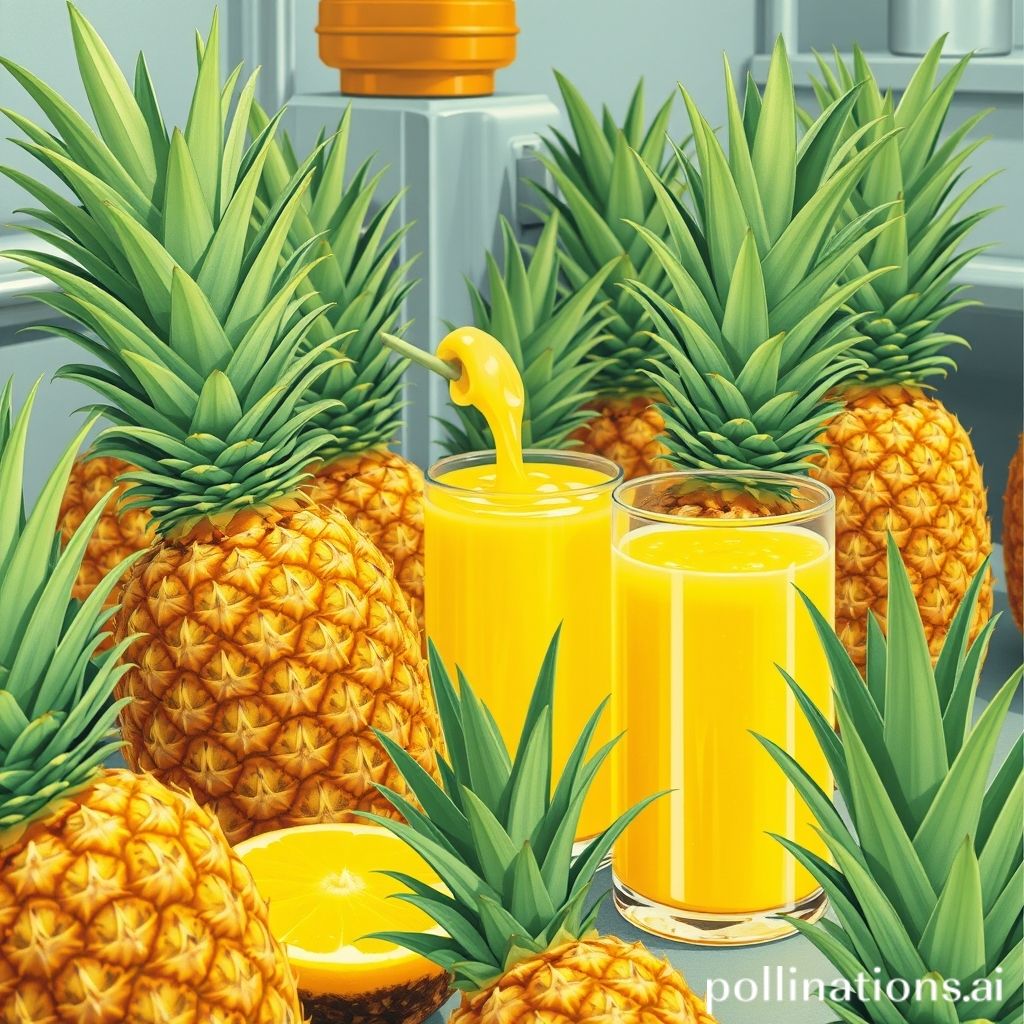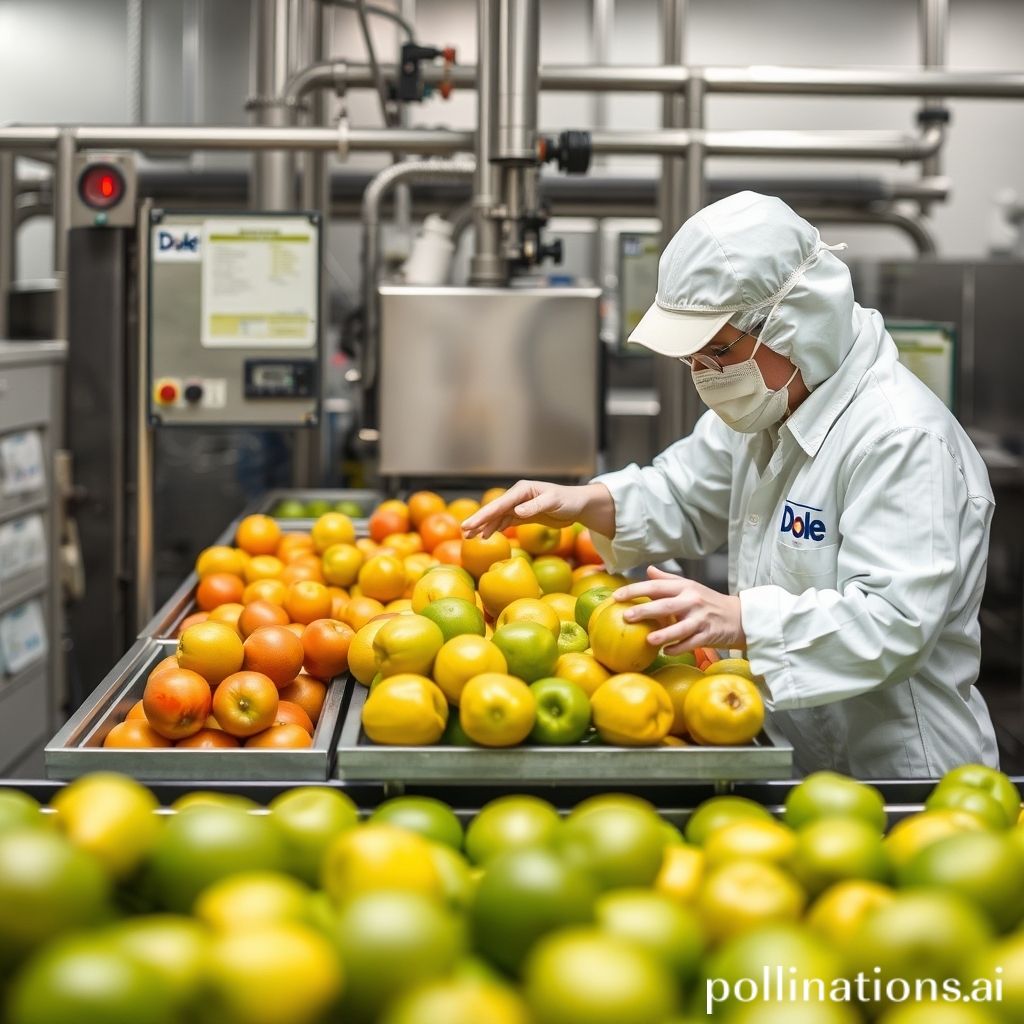Is Dole Pineapple Juice Pasteurized? Find Out the Truth Here
People are curious about the pasteurization status of Dole pineapple juice. They seek answers to whether this juice has undergone the crucial pasteurization process, which guarantees its safety for consumption.
It is important for consumers to have this information to make informed choices about the products they consume.

Table of Contents
What is pasteurization?
1. Definition of pasteurization
Pasteurization is a process that involves heating food products to a specific temperature and then rapidly cooling them to eliminate or reduce harmful bacteria, viruses, and other microorganisms. This technique was developed by Louis Pasteur in the 19th century. Its primary purpose was to extend the shelf life of milk and make it safer for consumption.
During pasteurization, the temperature and duration of heating vary depending on the type of food product. For example, when pasteurizing Dole pineapple juice, the juice is typically heated to a temperature of around 160°F (71°C) and held at that temperature for a short period, usually less than a minute.
The goal of pasteurization is to destroy potentially harmful pathogens without significantly altering the taste, nutritional content, or quality of the food product. By eliminating or reducing the number of microorganisms present, pasteurization ensures that the juice is safe for consumption, minimizing the risk of foodborne illnesses.
2. Purpose of pasteurization in food products
Pasteurization is widely used in the food industry to enhance food safety and extend the shelf life of various products, including Dole pineapple juice. The main objectives of pasteurization in food products are as follows:
- Eliminating or reducing pathogens: Pasteurization effectively kills or reduces the number of harmful microorganisms, such as bacteria, viruses, and parasites, that may be present in the food product.
- Improving shelf life: By eliminating or reducing spoilage organisms, pasteurization helps to extend the shelf life of food products, keeping them fresh and safe for a longer period.
- Maintaining nutritional quality: Unlike other preservation methods, like high-temperature canning, pasteurization involves minimal heat exposure. This helps retain the nutritional content, vitamins, and flavor of the food product.
- Ensuring product consistency: Pasteurization helps standardize the safety and quality of food products, reducing variability caused by natural variations in raw ingredients or processing conditions.
Importance of Pasteurization in Pineapple Juice
1. Microbial Contamination Risks in Unpasteurized Juice
Unpasteurized pineapple juice can be a breeding ground for harmful microorganisms, such as bacteria, viruses, or parasites, which can cause foodborne illnesses. These contaminants can enter the juice during the harvesting, processing, or packaging stages.
Key Points:
- Unpasteurized pineapple juice may contain harmful microorganisms.
- Contamination can occur during different stages of production.
- Consuming contaminated juice can lead to foodborne illnesses.
Pasteurization significantly reduces these microbial risks in pineapple juice, ensuring a safer product for consumers.
2. Benefits of Pasteurization in Pineapple Juice
Pasteurization plays a crucial role in improving the safety, quality, and shelf life of pineapple juice. It involves heating the juice to a specific temperature for a set duration, effectively eliminating or reducing harmful microorganisms Whilst preserving the juice’s flavor and nutritional value.
Key Points:
- Pasteurization kills or deactivates pathogens in the juice.
- It extends the shelf life of pineapple juice.
- Pasteurized juice retains its flavor and nutritional content.
Through pasteurization, consumers can safely enjoy pineapple juice without compromising their health. It ensures that the juice is free from harmful bacteria, viruses, or parasites that may cause foodborne illnesses.
| Pasteurization in Pineapple Juice | Benefits |
|---|---|
| Eliminates or reduces harmful microorganisms | – Enhanced safety |
| Extends shelf life | – Longer freshness |
| Preserves flavor and nutrition | – Retained quality |
Is Dole Pineapple Juice Pasteurized?
1. Dole’s Commitment to Food Safety
Dole, a leading producer of pineapple juice, prioritizes food safety to ensure the highest quality products for consumers.
2. Confirmation of Pasteurization Process by Dole
Dole pineapple juice undergoes a rigorous pasteurization process to ensure its safety and extend its shelf life.
Through heat treatment, the juice is effectively rid of harmful microorganisms such as bacteria, yeasts, and molds.
a. Pasteurization Benefits
- Enhanced Safety: Pasteurization eliminates potential pathogens in the juice, reducing the risk of foodborne illnesses.
- Extended Shelf Life: The pasteurization process helps Dole pineapple juice stay fresh for a longer period, allowing consumers to enjoy it for an extended time.
- Preservation of Nutritional Value: Whilst pasteurization involves heat treatment, Dole takes measures to preserve the juice’s nutritional content, ensuring consumers receive the health benefits of pineapple.
Pasteurization is a standard practice in the juice industry and is mandated by regulatory bodies to ensure the safety and quality of products like Dole pineapple juice.
It is important to note that pasteurization may slightly affect the flavor and texture of the juice, but the overall safety and quality remain intact.
By choosing Dole pineapple juice, consumers can trust in the brand’s commitment to food safety and enjoy their favorite juice without any concerns about pasteurization.

How is Dole pineapple juice pasteurized?
1. Overview of Dole’s pasteurization methods
Dole employs strict pasteurization methods to ensure the safety and quality of their pineapple juice. These methods include:
- Heat Treatment: Dole uses heat treatment to remove any harmful bacteria or microorganisms that may be present in the pineapple juice. This involves heating the juice to a specific temperature for a certain period of time, effectively killing any potential contaminants.
- Flash Pasteurization: Dole also uses flash pasteurization, which involves quickly heating the juice to a high temperature and then rapidly cooling it down. This rapid temperature change helps preserve the flavor and nutritional content of the juice Meanwhile ensuring the elimination of harmful pathogens.
- Continuous Flow Pasteurization: Dole employs continuous flow pasteurization, where the juice is heated to a specific temperature as it passes through a series of heat exchangers. This process ensures consistent and uniform pasteurization throughout the production line.
2. Ensuring quality and safety through pasteurization
Pasteurization is a critical step in the production of Dole pineapple juice because it serves multiple purposes:
- Elimination of Pathogens: The main goal of pasteurization is to eliminate any harmful bacteria, viruses, or other pathogens that may be present in the juice. This helps prevent foodborne illnesses and ensures that the juice is safe to consume.
- Extended Shelf Life: Pasteurization helps extend the shelf life of Dole pineapple juice. By reducing or eliminating the microbial load, the juice can stay fresh for a longer period, allowing consumers to enjoy its taste and nutritional benefits.
- Preservation of Nutrients: Dole’s pasteurization methods are designed to minimize nutrient loss during the process. By carefully controlling the temperature and time, essential vitamins, enzymes, and antioxidants present in the pineapple juice are preserved.
To ensure the effectiveness of their pasteurization methods, Dole follows strict quality control measures and regularly tests the juice for safety and quality. They adhere to industry standards and regulations to provide consumers with a reliable and safe product.
| Information |
|---|
| Dole pineapple juice undergoes pasteurization using various methods such as heat treatment, flash pasteurization, and continuous flow pasteurization. The pasteurization process eliminates pathogens, extends the shelf life, and preserves nutrients. Dole maintains strict quality control measures to ensure the safety and quality of their pineapple juice. |
Conclusion
Dole pineapple juice is indeed pasteurized, ensuring its safety for consumption. The pasteurization process involves heating the juice to kill any harmful microorganisms, making it a reliable choice for those seeking a refreshing and safe beverage option.
By undergoing pasteurization, Dole pineapple juice maintains its quality and retains the delicious taste that consumers love. So, whether you enjoy it on its own or as an ingredient in your favorite recipes, you can trust that Dole pineapple juice has been carefully processed to meet the highest standards of safety and quality.
FAQ about Dole Pineapple Juice Pasteurization
FAQ 1: Is Dole pineapple juice pasteurized?
Yes, Dole pineapple juice is pasteurized to ensure safety and quality.
FAQ 2: How is pasteurization carried out in pineapple juice?
Pasteurization of pineapple juice involves heating the juice to a specific temperature for a set period of time to kill any harmful bacteria and pathogens.
FAQ 3: What are the benefits of pasteurization in pineapple juice?
Pasteurization in pineapple juice provides several benefits, including the elimination of harmful bacteria and pathogens, extending the shelf life of the juice, and ensuring the juice is safe for consumption.
FAQ 4: Does pasteurization affect the nutritional value of pineapple juice?
Pasteurization may cause a slight reduction in the nutritional value of pineapple juice, particularly in terms of vitamin C content. Notwithstanding, the impact is minimal, and pineapple juice remains a good source of vitamins and minerals.
FAQ 5: Are there any alternatives to pasteurized pineapple juice?
Yes, there are alternatives to pasteurized pineapple juice. Some options include freshly squeezed pineapple juice or purchasing unpasteurized pineapple juice, which may be available in certain specialty stores. Notwithstanding, it is important to note that unpasteurized juice carries a higher risk of bacterial contamination and should be consumed with caution.
In conclusion, Dole pineapple juice undergoes pasteurization to ensure its safety and quality. Pasteurization eliminates harmful bacteria, extends shelf life, and makes the juice safe for consumption. Amidst this may be slight reductions in certain nutrients, pineapple juice remains a nutritious beverage option. For those seeking alternatives, fresh juice or unpasteurized options are available but should be consumed responsibly due to the higher risk of bacterial contamination.
Read Similar Post:
1. Boost Your Immune System: The Surprising Benefits of Pineapple Juice for COVID-19
2. Is Pineapple Orange Juice: A Tasty and Nutritious Choice for a Healthy Diet?

